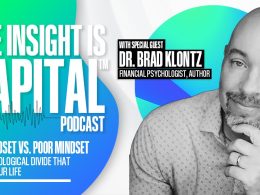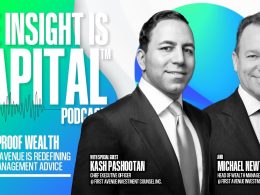by Heather Murphy, Commonwealth Financial Network
Elder financial abuse has been called the crime of the 21st century for good reason. The North American Securities Administrators Association estimates that each year, $37 billion is stolen from seniors by unknown bad actors as well as by family members, friends, and others in a position of trust. And that number could grow—according to the Social Security Administration, as of September 2018, the average life expectancy for a man turning 65 today is 84.3 years, and the life expectancy for a woman the same age is 86.7. As the number of older Americans increases, so does the number of targets for financial exploitation. So, how can we, as financial professionals in a position of trust, help protect our clients?
Perpetrators look for opportunities as well as vulnerabilities. Combine the elder generation’s tendency to be more trusting with their higher likelihood to have diminished capacity or a decline in judgment, and there lies the opportunity.
There are a couple of ways criminals exploit their victims:
- Elder fraud: This is classified as a scheme perpetrated by strangers against seniors. Tactics may include frauds attempted by phone (e.g., claims of a foreign lottery, a grandchild in distress, or an IRS audit), as well as online (e.g., sweetheart scams and “advance fee” scams where victims are approached via social media).
- Financial abuse: This includes the illegal use of an older adult’s funds, property, or other assets by someone in a position of trust (e.g., a family member, friend, power of attorney [POA], or caregiver).
Undue influence is a key factor in financial exploitation and often hard to prove. It involves one person using tactics to control the decisions of the victim for the influencer’s benefit. Common strategies involve threatening, nagging or harassing, lying or telling half-truths, and isolating the victim.
Diminished capacity can range from mild cognitive impairment (MCI) to more serious conditions. Approximately 15 percent to 20 percent of people age 65 and older have MCI, according to the Alzheimer’s Association, and one-third of people with MCI develop dementia within five years. The odds increase with age, as 42 percent of people 85 and older have Alzheimer’s disease or another form of dementia.
Diminished capacity can affect victims’ ability to manage money and other financial assets in a way that’s consistent with their values and meets their personal needs. It’s important to pay attention—someone whose overall judgment around financial decisions has changed may still be able to pay bills and balance a checking account. It may take a while for anyone to recognize there’s a problem, all while the individual doesn’t realize he or she is being exploited.
Triggers to watch for. Medical professionals use a wide range of tests to diagnose diminished capacity and dementia. While you don’t have the same diagnostic tools as a doctor, you have the benefit of the relationship with the client. Through your meetings, you’ve developed a history of observing financial decisions based on the client’s beliefs. Changes in that baseline behavior may be red flags for diminished capacity.
We also recommend paying attention to changes in behavior patterns, which may include missed office appointments, confusion or misunderstanding about instructions, difficulty following directions, frequent calls to the office, difficulty recalling past decisions and actions, trouble handling paperwork, and repetitive speech or questions.
The effects of financial exploitation are far reaching. Victims can lose their life savings, which translates into significant expenses at the state and federal level to cover housing and medical care needs. While national costs are not known, a recent study by New York State estimates public costs to investigate and intervene in cases of elder financial abuse at more than $14 million. This includes more than $6 million in costs for service agencies such as Adult Protective Services and an additional $8 million in public benefits like Medicare, Medicaid, food stamps, and housing and health benefits.
There’s also the emotional impact, which often includes feelings of shame, guilt, and embarrassment. According to Dr. Mark Lachs, a geriatrics doctor at Well Cornell Medicine, “Studies have shown that victims of elder abuse are at increased risk of death, after adjustment for any chronic illness they may have.”
The good news is that regulators and lawmakers recognize the magnitude of the problem and are taking steps to not only protect investors but provide safe harbors to financial institutions that report, in good faith, cases of financial exploitation to the appropriate agencies.
In February 2017, the SEC approved the adoption of new FINRA Rule 2165, which permits broker/dealers to place temporary holds on disbursements of funds or securities from the accounts of a senior or other vulnerable adult when there is a reasonable belief the client may be the victim of financial exploitation. At the same time, a new amendment to FINRA Rule 4512 requires member firms to make reasonable efforts to obtain the name of and information for a trusted contact. Both rules became effective on February 5, 2018.
On May 24, 2018, President Trump signed the Senior Safe Act into law. This act provides immunity from lawsuits for financial institutions (including broker/dealers) and certain individuals affiliated with financial institutions that report potential financial exploitation of senior citizens.
Depending on your firm affiliation, you may follow different policies. RIA firms, for example, are responsible for their own reporting. Those who maintain B/D affiliations can likely lean on their firm for assistance. At Commonwealth, we require our advisors to immediately express their suspicions of elder abuse to our Compliance or Legal departments. And remember: you don’t need a smoking gun; suspected abuse is sufficient reason to report your concerns.
We manage the process for our advisors for several reasons. First, we’re familiar with state law requirements: Each state has its own laws on reporting elder abuse and who needs to know. Some state securities regulators require that broker/dealers report any suspicion of financial exploitation to them as well. And while everyone’s goal is to protect the client, we also want to protect the advisor’s relationship with the client. We’ll ask the nosey questions and play the proverbial “bad guy.”
Proactive planning and trusted contacts. While there are certain steps you need to follow when you suspect financial exploitation, it’s better to be proactive and map out a plan with your clients before something happens.
It’s never too early for your client to have a trusted contact on file. While FINRA’s original intention with the trusted contact rule was to aid broker/dealers in combating elder financial abuse, there’s no downside in having a client identify someone to contact should you be unable to reach the client.
Moreover, consider the issues raised in this article when having any discussions about the future. While discussing proper estate planning, for instance, ask whether clients have thought about what they want to happen if they can’t handle their affairs. And, more important, you should have a conversation now with your clients regarding what they would want you to do as their financial advisor should you believe that their financial capacity has diminished.
In addition to the regulatory and fiduciary obligations we have as financial professionals, we have an ethical obligation to stand up for clients and protect them from those who may seek to cause them harm and steal their money. We are in this together.
Are there other signs not mentioned here that you consider red flags for diminished capacity? Have you ever had to deal with elder financial abuse, and if so, how have you addressed it? Please share below.
Commonwealth Financial Network is the nation’s largest privately held independent broker/dealer-RIA. This post originally appeared on Commonwealth Independent Advisor, the firm’s corporate blog.
Copyright © Commonwealth Financial Network















